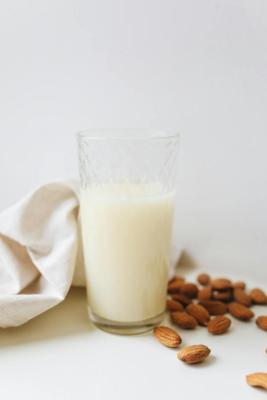Key Ingredient in Plant-Based Milk Linked to Colon Cancer, Experts Warn
Experts are sounding the cowbell on the potential dangers of nondairy milk.
Cow milk consumption in America has drastically declined in recent years as consumers have gravitated towards plant-based milk for health reasons, have an intolerance to dairy, and have ethical concerns about animal abuse in modern dairy farming practices.
However, certain ingredients in these alternatives may be more damaging than dairy.
While they may be lower in fat and calories than cow’s milk, research has established that plant-based options are not always nutritionally equal to what comes from the dairy farm. About a third of plant-based milks have sugar levels similar to strawberry or chocolate milk.
Still, there is a perception that plant-based means health-conscious even though many of these milk products contain additives and emulsifiers that qualify them as ultra-processed foods (UPFs).
Emulsifiers, which include gelatin, whey protein, xantham gum, and carboxymethylcellulose, are commonly added to nondairy milk to prevent separation and create a smooth, creamy texture.
Ultra-processed foods are disruptive to the microbial system, and many experts believe overexposure to UPFs is partly to blame for the rising rates of colon cancer in young people.
A staggering 20% of colorectal cancer cases in 2019 were discovered in people younger than 55, up from 11% in 1995.
Alarmingly, this younger demographic tends to be diagnosed in the disease’s later stages, making it harder to treat and cure, according to docs who expect colon cancer to cause about 53,000 US deaths this year.























